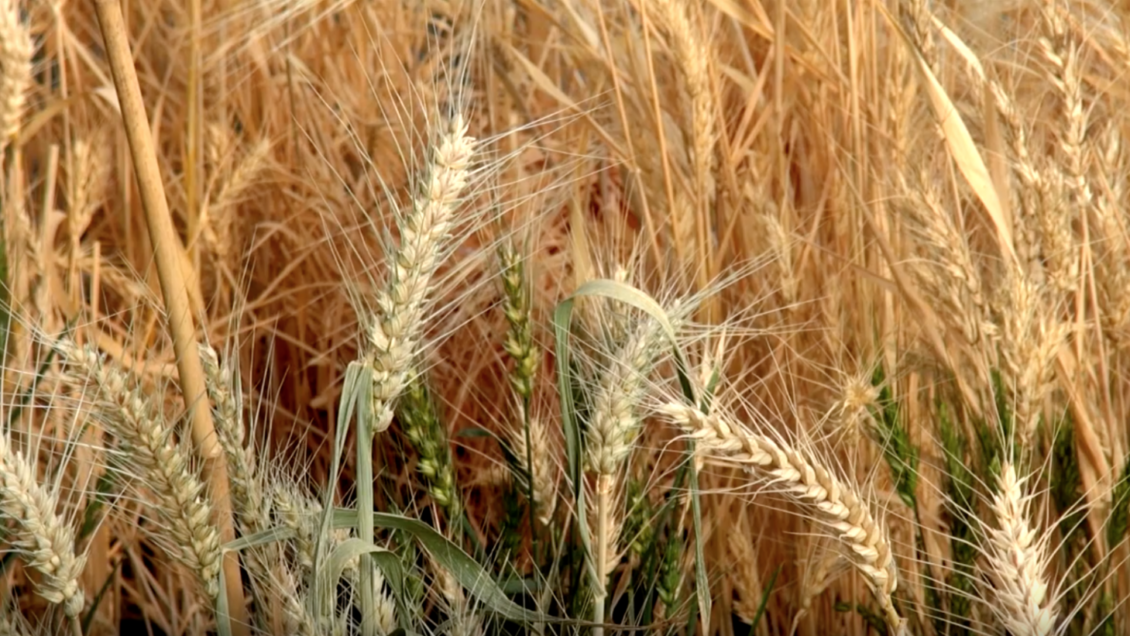FLORENCE — A Clemson University researcher is using state-of-the-art facilities at the Pee Dee Research and Education Center (REC) to help develop a new wheat variety that’s safe for people who suffer from celiac disease to eat.

Sachin Rustgi, an assistant professor for molecular breeding, altered the wheat genome to create the new variety, which has a built-in defense against celiac disease. Rustgi uses laboratories provided by Clemson’s Advanced Plant Technology Program (APT) to conduct his research.
“This program provides a unique environment for researchers,” Rustgi said. “Being a member of the program has allowed me to communicate with other researchers working in diverse fields of biological sciences which greatly benefits a multidisciplinary project such as this.”
The new wheat variety contains two enzymes: one from barley that attacks gluten, the protein that gives breads, pasta and cereal a chewy, crunchy texture; and another from the bacterium Flavobacterium meningosepticum. These enzymes, called glutenases, break down gluten in the human digestive system and reduce the amount of indigestible gluten peptides by two-thirds. Peptides perform important biological functions, such as regulating activity in cells.
“By packing the remedy to wheat allergies and gluten intolerance right into the grain, we’re giving consumers a simpler, lower-cost therapy,” Rustgi said. “We’re also reducing the danger from cross-contamination with regular wheat, as the enzymes in our wheat will break down that gluten as well.”
This new wheat variety is still in the research stage. Once it’s available to the public, Rustgi said he plans to educate growers and the public about this new variety by giving presentations at the Pee Dee REC Field Day. He also will work with Jonathan Windham, a Clemson Cooperative Extension Service associate, to provide educational materials.
[vid origin=”youtube” vid_id=”VXSLQ-igMZI” size=”medium” align=”left”]
The goal of the APT Program — part of Clemson’s Institute of Translational Genomics — is to improve agriculture in South Carolina one field at a time by employing translational, problem-solving science to advance crop agriculture in the state. The program is a key part of an overall effort at Clemson to optimize plants for production in South Carolina and the Southeast for all agricultural stakeholders — from large-scale producers to small-scale landowners who work with heirloom varieties for restaurants, brewers and more. The program is headquartered at the Pee Dee REC, with members found throughout South Carolina.
Research conducted as part of the APT program includes: biological and genetic diversity, bioenergy and alternative fuels, Extension research and resources, genetics and genomics, nutrition, plant hazards and technology.
Celiac disease affects more than 3 million people in the United States.
Rustgi brought this research project with him when he came to Clemson from Washington State University in 2016. In addition to his position at the Pee Dee REC, Rustgi also is a faculty scholar in the Clemson School of Heath Research and adjunct assistant professor with the Washington State University crop and soil sciences department.
Other Clemson professors who assisted in this research are Hong Luo of genetics and biochemistry and Nishanth Tharayil of plant and environmental sciences. Luo and Tharayil helped analyze the altered wheat in Clemson’s Multi-User Analytical Lab (MUAL) and Metabolic Core Facility.
“Charles Rice of biological sciences, who is a veterinarian and an immunologist, will be helping us to take this research to another level,” Rustgi said.
Outside researchers involved with this project are: Claudia Osorio, a scientist at the Center for Nutritional Agro-Aquacultural Genomics in Chile; Jaime Mejias with Chile’s Institute for Agricultural Investigation; Nuan Wen of Washington State University; Bao Liu, a scientist at the Northeast Normal University in China; and Stephen Reinbothe, a scientist at Université Grenoble-Alpes in France.
END
This project is supported by Grant No. 15-202- EQUIP-5701-430-1502211 from the Clemson Faculty Succeeds program and Grant No. 1R01 GM080749-01A2 from the National Institutes of Health. Any opinions, findings and conclusions or recommendations expressed in this material are those of the authors and do not necessarily reflect the views of the National Institutes of Health.
NOTE: Information in this article was updated on March 7, 2019.
Get in touch and we will connect you with the author or another expert.
Or email us at news@clemson.edu

